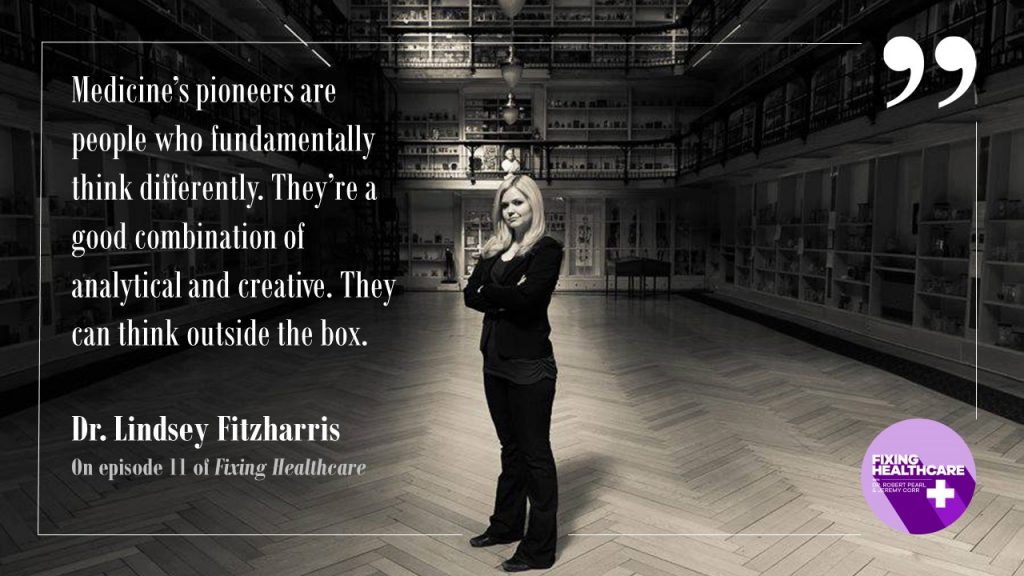Podcast: Play in new window | Download
Subscribe: Spotify | Email | RSS | More
Consistent with the theme of Season 2, in which we look outside of traditional walls for medicine for ideas to fix healthcare, our guest this month comes to the Fixing Healthcare podcast from an unusual background. Dr. Lindsey Fitzharris is one of the world’s leading scholars on medical history, having earned her doctorate from the University of Oxford.
She wrote the bestselling book, “The Butchering Art: Joseph Lister’s Quest to Transform the Grizzly World of Victorian Medicine,” created the popular blog, the Chirurgeon’s Apprentice, and hosts the YouTube series, Under the Knife, which takes a humorous look back at our medical past.
Listen as healthcare leader Robert Pearl, MD, and his co-host Jeremy Corr, tap into Lindsey’s vast historical knowledge and extract relevant insights about healthcare today.
In this episode, you’ll learn why:
- Doctors used to smell (and even taste) their patient’s urine, and why that’s not as crazy as it sounds.
- Patients of the past preferred their doctor’s apron to be covered in dried blood and guts.
- It takes, on average, 17 years for a medical innovation to become standard clinical practice.
- Surgery became more (not less) dangerous immediately after the advent of anesthesia.
- Historians of the future will shake their heads at American medical practice today.
- The anti-vaccination movement actually dates back as far as the 18th century.
- Lindsey Fitzharris is hesitant to use the word “quack,” considering its origins.
READ: Full transcript of our discussion with Lindsey Fitzharris
* * *
Fixing Healthcare is a co-production of Dr. Robert Pearl and Jeremy Corr. Subscribe to the show via Apple Podcasts or wherever you find podcasts. Join the conversation or suggest a guest by following the show on Twitter and LinkedIn.

